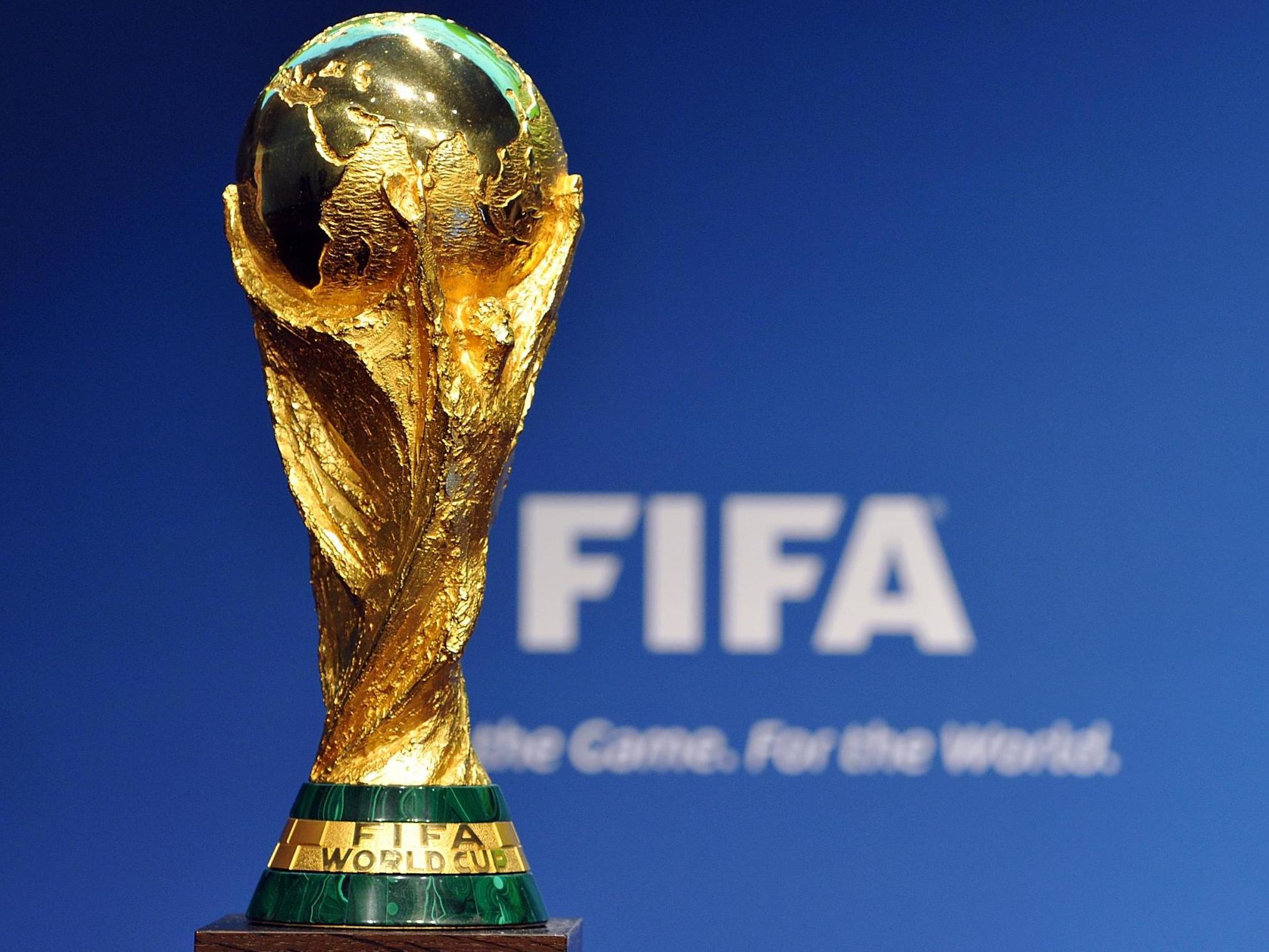Will bribery allegations see Qatar stripped of 2022 World Cup?
Organising committee for the upcoming tournament issued a strenuous denial in relation to the claims on Tuesday

Your support helps us to tell the story
From reproductive rights to climate change to Big Tech, The Independent is on the ground when the story is developing. Whether it's investigating the financials of Elon Musk's pro-Trump PAC or producing our latest documentary, 'The A Word', which shines a light on the American women fighting for reproductive rights, we know how important it is to parse out the facts from the messaging.
At such a critical moment in US history, we need reporters on the ground. Your donation allows us to keep sending journalists to speak to both sides of the story.
The Independent is trusted by Americans across the entire political spectrum. And unlike many other quality news outlets, we choose not to lock Americans out of our reporting and analysis with paywalls. We believe quality journalism should be available to everyone, paid for by those who can afford it.
Your support makes all the difference.An anti-corruption expert has weighed in on the likelihood of allegations of bribery leading to Qatar being stripped of its right to host the 2022 World Cup.
It was alleged in an updated US Department of Justice indictment on Monday that two former members of Fifa‘s executive committee – Nicolas Leoz and Ricardo Teixeira – accepted inducements to vote for Qatar ahead of the decisive vote in 2010.
Qatar’s World Cup organising committee issued a strenuous denial in relation to the bribery allegations on Tuesday, and Sylvia Schenk, the head of Transparency International Germany’s sport working group, said the accusations appeared to lack substance.
“There is not much substance in the indictment regarding bribery linked to Qatar, not even the amount allegedly paid specified,” she told the PA news agency.
“The person/entity who paid is not named, neither any facts around how and when a payment was made. There is only one sentence in a 70-page indictment.
“I cannot imagine that this supports any further step. Allegations like that were already part of the Garcia report in 2015, but couldn’t be proved then.”
A report by independent investigator Michael Garcia, written in 2014 and published by Fifa in 2017 after a section of it was leaked in the German media, examined the circumstances surrounding the bidding process for the 2018 and 2022 World Cups, which was run concurrently and concluded with a joint vote in December 2010.
Schenk, who was appointed to the independent human rights advisory board set up by football’s world governing body in 2017, said Fifa would need “a justified reason” under Swiss law to terminate its hosting contract with Qatar.
She pointed to a case in Switzerland involving a waste transport contract, where corruption was not only proven but also found to be decisive to the awarding of the contract. Schenk said the court still did not declare the contract void, because it had been executed a long time previously and would prove very difficult to undo retrospectively.
She said that even if a legal challenge was raised, it would be unlikely to finally conclude before 2028 at the earliest. And based on the decision in the proven corruption case, she said it would be unlikely to remove hosting rights from Qatar even if the bribery allegations could be proved.
The Qatar 2022 organising committee released a statement on Tuesday, which read: “Qatar’s Supreme Committee for Delivery & Legacy (SC) strongly denies the allegations contained within the court papers made public in the US on 6 April 2020. They are part of a long-standing case, the subject of which is not the 2018/2022 Fifa World Cup bidding process.
“Despite years of false claims, evidence has never been produced to demonstrate that Qatar won the rights to host the Fifa World Cup 2022 unethically or by means that contravened Fifa’s strict bidding rules.
“The SC maintains that it strictly adhered to all rules and regulations for the 2018/2022 Fifa World Cup bidding process and any claim to the contrary is baseless and will be fiercely contested.”
Leoz, who was the head of the South American confederation Conmebol at the time the alleged bribe was received, died in August last year.
Teixeira, the former head of the Brazilian national federation, was banned for life from all football activity by Fifa last year.
PA
Join our commenting forum
Join thought-provoking conversations, follow other Independent readers and see their replies
Comments